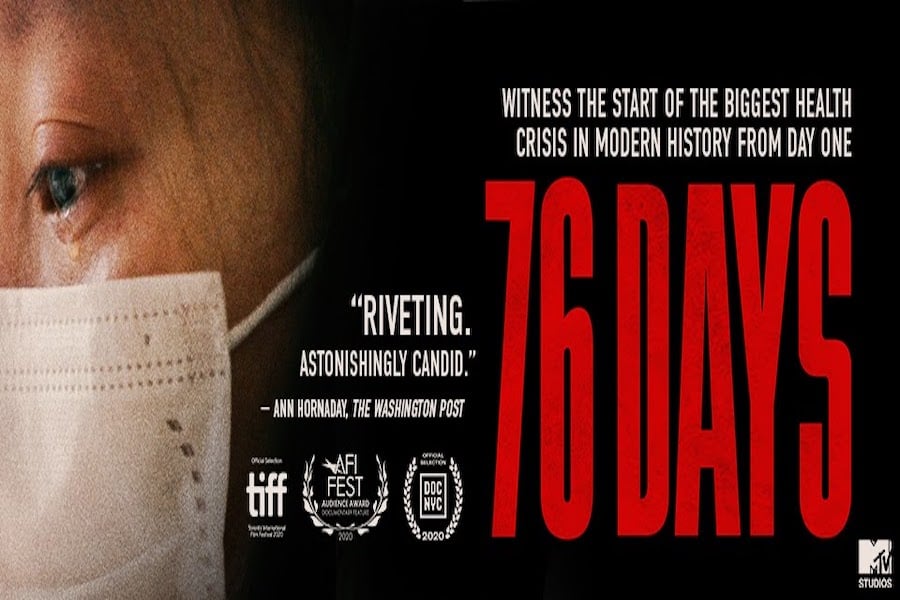Hao Wu, director of “76 Days” documentary, talks creative process, inspiration
Promotional photo for “76 Days.” The film’s director, Hao Wu, discussed the film in a Q&A Thursday evening.
April 9, 2021
Director Hao Wu immediately saw a story in the early moments of the COVID-19 pandemic. Wu, who was living in China at the time, said he remembers the “pure panic and fear” and the moments in which the pandemic felt under control.
“We wanted to continue filming these people as they’re being released from the hospital, go back, (and) try to rebuild (their) life,” Wu said.
Wu discussed his new documentary, “76 Days,” in an event hosted by Northwestern School of Communication’s Office of External Programs, Internships and Career Services Thursday evening.
The film follows frontline medical professionals and patients in Wuhan, China, during the nation’s 76 days of lockdown in early 2020. Rather than focusing on hard facts, the documentary takes viewers inside hospital life during those 76 days.
Wu said he followed his emotional instinct while filming on the frontlines. To make the film as genuine as possible, the team filmed as much as they could and chose the parts that resonated with them the most.
Weinberg senior Hongrui He said she had to watch the film over two days because of its emotional impact.
“(My) first impression after seeing this movie was feeling so sad and so depressed, but just after some time to adjust my feelings, I see there are just so many personal and emotional stories in documentaries,” she said. “I appreciate that the history can be recorded in this manner.”
Instead of creating a story centered on the pandemic’s politicalization, Wu said he centered his story around human beings.
“My intention was to add a different narrative of our understanding of COVID-19,” Wu said. “To move our conversation beyond pure numbers and our political divide.”
The film’s narrative has a glimmer of hope as lockdown is lifted and characters take a moment to “look back and realize how much (they) have lost,” Wu said.
Wu is an acclaimed director, with accolades from the Moscow International Documentary Film Festival, the Los Angeles Asian Pacific Film Festival and South by Southwest. “76 Days” has been nominated for several awards, including the DOC NYC Cinematography Award — for which it is on the shortlist — and the IFP Gotham Awards Best Documentary Award.
University of Chicago professor Rachel DeWoskin, an event moderator, praised Wu’s ability to communicate deeply personal stories that reflect everyone’s experiences.
“(His films) are so intensely intimate… that it often feels like the boundaries between viewers and the human beings whose lives Hao is exploring blur, sometimes even vanish,” DeWoskin said. “At the same time, the accrued power of individual stories builds into questions that better us in a universal way.”
Email: [email protected]
Twitter: @oliviagalex
Related Stories:
— Northwestern’s Asian American communities look beyond the University for healing
— How art helps sustain mental wellbeing during COVID-19
— NU alumna Jenny Shi reflects on the year of her award-winning documentary “Finding Yingying”












